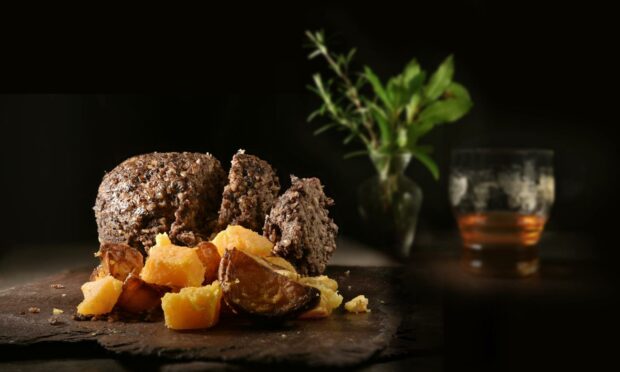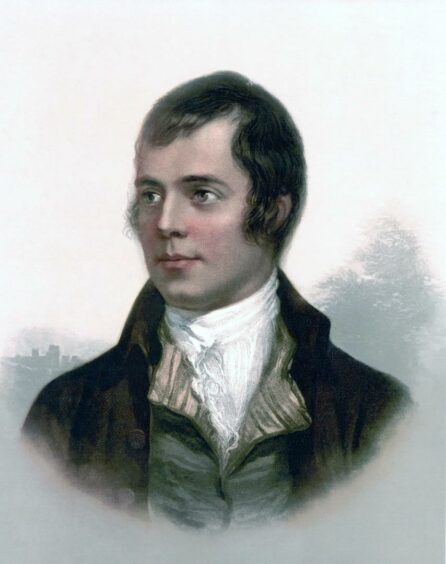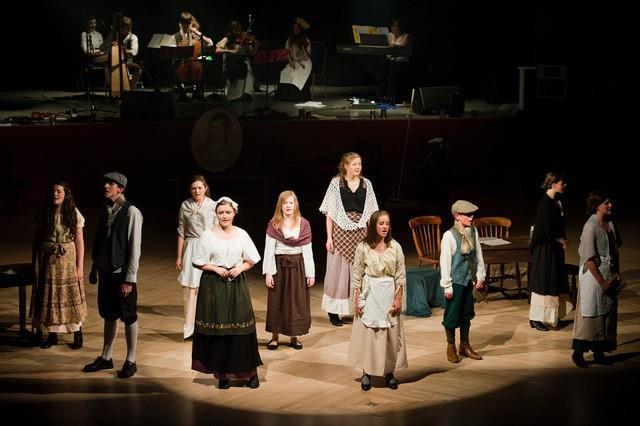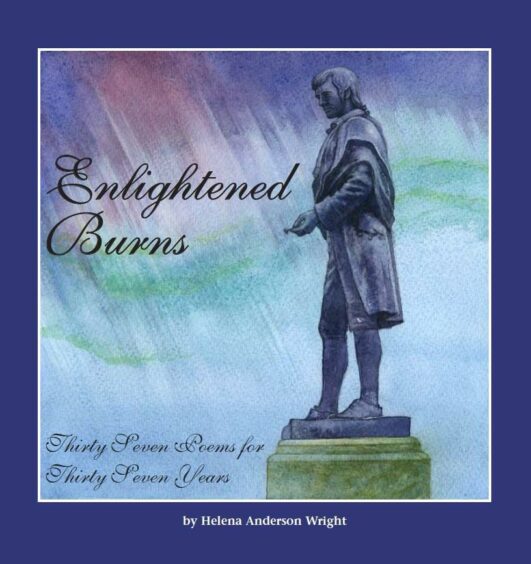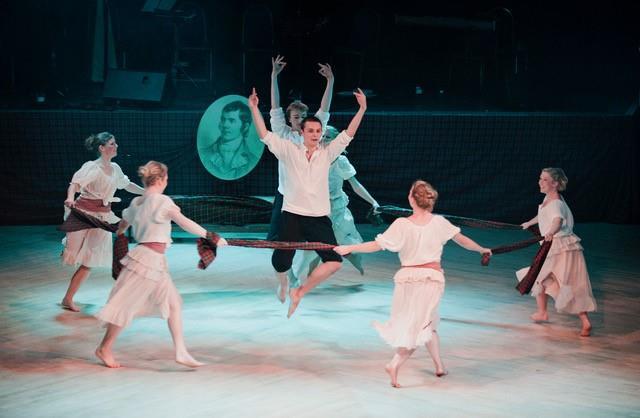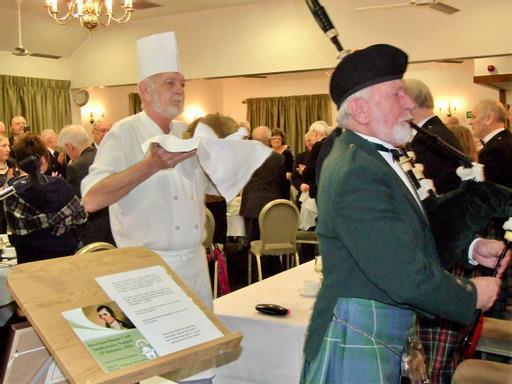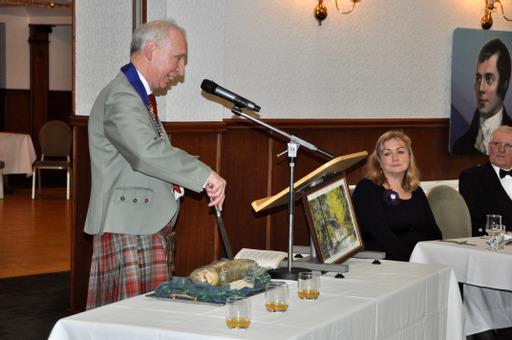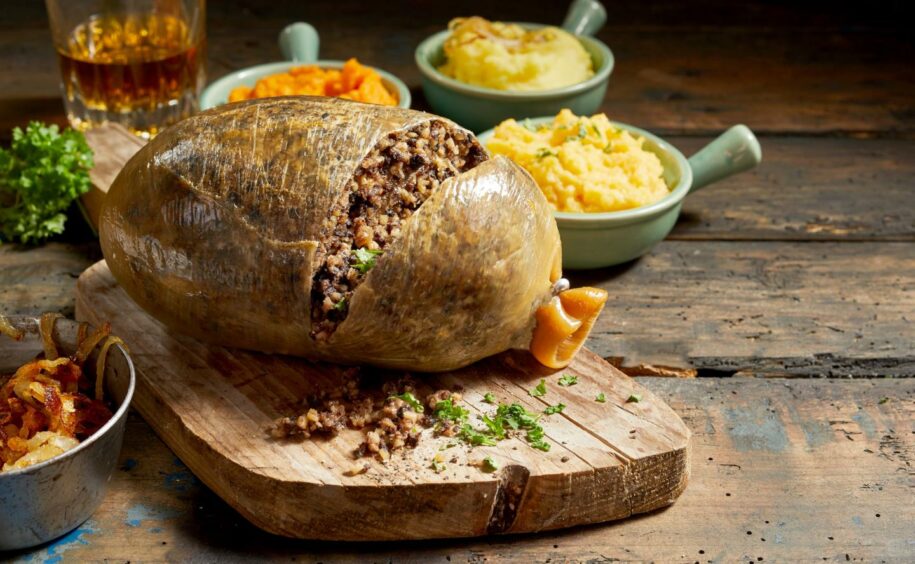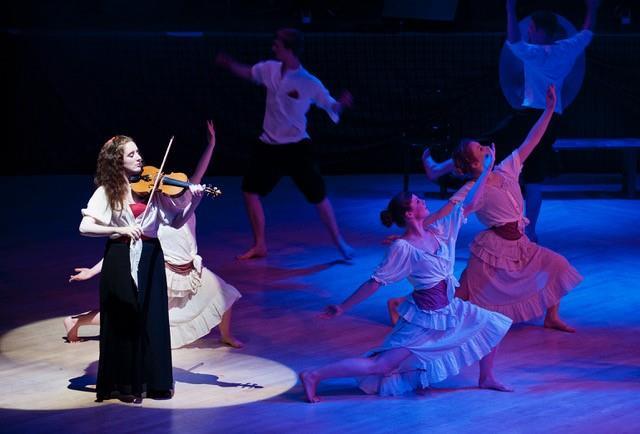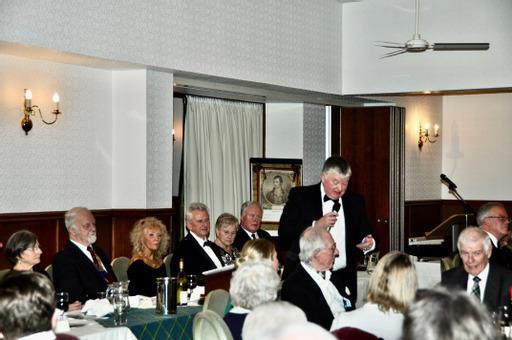With the festive glow subsiding, Scotland traditionally welcomes some post-new-year cheer with a Burns Night to revive our flagging January spirits.
And as the country gears up for the big event, other people around the world are also preparing their closest version of haggis, neeps, tatties, a dram or two, and hunting down some fine Robert Burns poetry to recite to guests and Burns enthusiasts alike.
This night celebrates the birth of the Bard, on or around January 25, and the enduring appeal of his poetry, life and, of course, Scottish tradition.
Held in 1801 by Burns’ friends several years after his death, the first supper took place in Burns Cottage, Alloway. The event consisted of a toast to the Bard, a recital of his poems and the toast to the haggis. A year later and several other informal gatherings had sprung up across Scotland in venues ranging from pubs to homes.
Even today, Burns nights are as varied and interesting as their hosts and organisers. A Burns night these days can include everything from a private club event and small family get-togethers all the way up to a full ceilidh with band and hundreds of guests – when Covid restrictions allow.
But the key – and crucial – ingredients remain the same as they did on that very first night over 200 years ago: good food, a dram or two, and the company of friends.
However, with all the changes that have taken place across the globe in the last couple of years as we strive to modernise language and re-examine traditions, does Robert Burns, his poetry and the Burns Supper remain relevant in the modern world?
Burns and the younger generation
Helena Anderson-Wright, project director of the Heritage Lottery-funded Enlightened Burns, certainly believes so.
Helena, who received the British Empire Medal for tripling north-east youth participation in the Robert Burns World Federation School Festival, says that even today, Burns’ poetry still strikes a chord.
“His appeal is vast and far reaching,” she said. “Burns wrote about ordinary people, their thoughts, feelings and emotions. His love of animals, nature and the countryside, reaches our hearts. He championed against the injustices of society: we can all connect in some way to what the poet was expressing.
Each story comes alive in the child’s imagination. This inspires them to learn more about Burns and Scottish culture
“If he were alive today, he would be campaigning for protection of our planet and respect for nature. He condemned oppression, hate, bitterness, greed, destruction and conflict.
“His belief that we should all live peacefully together is a timeless message.”
Helena is also convinced that Burns remains accessible to the younger generation, even today when the scrutiny of language is ever-present in mainstream and social media.
“The poetry and songs of Burns speak to children as well as adults,” she said. “From the deer in My Heart’s in the Highlands, to the creature’s plight in To a Mouse, to the battle song, Scots Wha Hae, each story comes alive in the child’s imagination. This inspires them to learn more about Burns and Scottish culture.
“Our schools competitions further encourage pupils to learn and appreciate the works of Burns, whatever their background and ability.”
As a result of the Enlightened Burns project, Helena produced a book (Enlightened Burns, 37 Poems for 37 Years), for which she received congratulations from HRH The Duchess of Rothesay, after she had read it.
The Enlightened Burns ballet heritage project also saw school children take part in a ballet depicting the works of Burns and showcasing the musical, recital and dance talents of children across Scotland.
She said: “It is wonderful to see and hear children of so many different nationalities and language groups appreciate Robert Burns’ works, as they connect with our heritage and culture. No-one is excluded.”
David Henderson, president of the Inverness Burns Club, agrees that Burns can still speak to the next generation.
“Burns’ works are relevant to every generation,” he said. “As with all literature and poetry, exposure in early schooldays is important to kindling understanding and enthusiasm.”
Burns’ continuing fame and relevance is based upon his representation and fond respect for the lives of ordinary people
David says the majority of attendees at the Burns Suppers are, not surprisingly, mostly Invernessians. He says the supper remains as popular as ever locally, and attributes much of the Bard’s appeal to his insights into human nature.
He said: “Burns’ continuing fame and relevance is based upon his representation and fond respect for the lives of ordinary people.
“It’s his ability to present poetically a wide range of sentiments, from grief and despair to derision and hilarity,” he adds.
“The supreme quality of his poetry, the sentiments and philosophy they contain and the songs based upon them have a powerful relevance in this age.”
Tourism and Burns’ global appeal
Beyond Scotland’s shores, Robert Burns holds an irresistible appeal for those hoping to connect with the Old World or, for ex-pats, reconnect with tradition.
David does receive occasional enquiries from visitors, but relatively few about the history, significance or format of Burns Suppers. Helena, on the other hands, fields many enquiries from interested parties from around the globe, and between them it’s evident that the Burns appeal is as global as it is domestic.
“Visitors and ex-pats are attracted by Burns’ fame,” he says. “It’s their shared recognition of the quality of his poetry and their respect for his egalitarianism and humanity.”
Helena agreed adding: “Burns enables people around the world to maintain the link with their homeland, culture, ancestry and fellow Scots. The celebration of Burns gives people a sense of connection with their heritage and roots.
“It also brings in others who want to learn and enjoy the experience of Scottish culture as they share in ‘The Cup o’ Kindness’.”
Helena also points out the value of Burns to Scottish tourism.
“The Burns Supper is unique throughout the world,” she states. “The tourism that Robert Burns generates for Scotland is considerable.”
Prior to lockdown, Robert Burns generated a staggering £200 million to the Scottish economy. VisitScotland, the home of Scottish tourism, appreciates the role of the Bard in creating continued healthy tourism revenue. In addition to listing may of the Burns events being held throughout Scotland, this year it will turn the spotlight on Robert Burns and other Scottish writers with Scotland’s Year of Stories.
Malcolm Roughead, VisitScotland chief executive, believes that 2022 will present a great opportunity to celebrate the work of Burns as the organisation launches the campaign top help boost tourism and further promote the work of Scotland’s literary talents.
“Scotland’s National Bard is a cultural icon around the world,” he said. “Burns Night is a global celebration of Scottish stories and culture in many countries, especially USA, Canada and Australia.
“These celebrations can have a positive effect for Scottish tourism, encouraging people to visit Burns’ home country and the inspiration for many of his stories and poems.”
Food, drink and dance
Ranging from virtual celebrations to YouTube ceilidhs and in-person dinners, it’s clear the north-east and Highlands remain as devoted as ever to the Bard and Burns Night.
It’s great that this traditional celebration of the country’s national poet is back on the menu once again at venues across Aberdeen and Aberdeenshire
Chris Foy, CEO of VisitAberdeenshire, agrees. He said: “The poetry and songs of Robert Burns maintain their appeal the world over given their universal themes of love, connection to nature and, of course, their humour, and help explain why Burns suppers remains so popular.”
And food plays its role in boosting the economy, too. Research from Glasgow University showed that, before Covid, £20 million was spent on Burns-related food and drink annually, with demand for haggis, including veggie versions, especially high this time last year.
Local appeal
Pointing out the role of local food – as well as poetry and music – in a Burns supper, Chris added: “It’s great that this traditional celebration of the country’s national poet is back on the menu once again at venues across Aberdeen and Aberdeenshire. It allows visitors to experience the very best of our entertainment and local produce.”
And David believes that although Burns may appeal to the ex-pat community and interested visitors, his writing still has the power to hold locals – and all Scots – in thrall.
His songs retain an enduring power to make us laugh, dance or cry
“Our club membership is almost exclusively local Invernessians, so tickets for our suppers are bought by them for themselves, family and friends,” he said.
“The supreme quality of his (Burns) poetry, the sentiments and philosophy they contain, and the songs based upon them, have a powerful relevance in this age.”
And although Scotland has a wealth of contemporary and historical literary talent, David, like many Burns fans, believes the Bard stands head and shoulders above them all.
“His songs and the music to which he or others have set them, are the most important and popular Scottish collection,” he adds. “They retain an enduring power to make us laugh, dance or cry – perhaps all three at the same time.”
Top tips for a perfect Burns Supper
So what makes the perfect Burns Supper?
“My own preference is for ones that are simple and couthy, involving family, good friends, conventional haggis, neeps and tatties and drink and, essentially, recitation and song, solo and communal,” says David.
“Speeches are important, particularly the Immortal Memory of Robert Burns, and the lighter addresses to and from the lassies. There should be laughter and maybe some tears.
Leave inhibitions at home and be ready to enjoy yourself
“For a posh supper, men had better dress up in dinner jacket, black tie, with a kilt or trews. Ladies might wear a tartan sash over their shoulder.
“For a moderately genteel affair, men should wear kilt or trews, with a tweed jacket and tie.
“For a ‘couthy do’ in your home or pub, anything goes! I think Burns would prefer the last of these.”
Finally…
“Leave inhibitions at home and be ready to enjoy yourself,” said David. “Go with the flow and try to get on the wavelength of the occasion and its essential class-less couthyness. This may involve the consumption of alcohol.
“Sing Auld Lang Syne with gusto (and with an “S”, not a “Z”) and a sense of shared emotion. Feel the spirit of Burns and auld Scotland swim around you.
“Go home and read some of Burns’ poetry, starting with A Man’s a Man for a’ That followed by Bonnie Wee Thing. It has the power to change your view of the world.”
